The drummers of '60s British pop
Dave Clark and the British Invasion drumming superstars
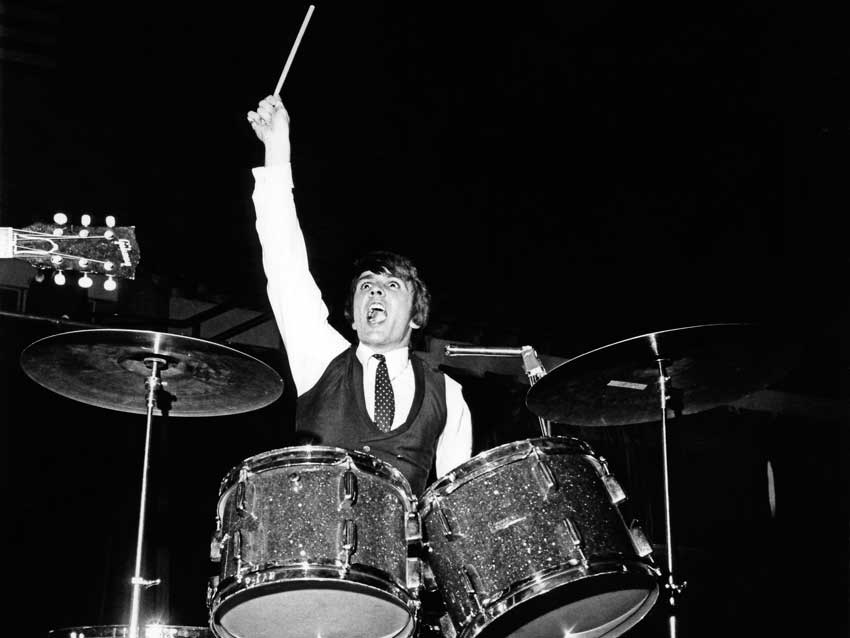
Dave Clark
UK hitmakers The Dave Clark Five were one of the foremost ‘British Invasion’ acts. In May 1964, the Five were the first British group to undertake a full-scale tour of the USA – and for a while they vied with The Beatles to be Uncle Sam’s fave UK act. Clark was to finish the mid-1960s as the second most famous drummer in the world (behind Ringo, obviously).
The best-remembered of their early hits were chart-topping ‘Glad All Over’ and ‘Bits And Pieces’, packed with percussive hooks which were stamped out on cue in ballrooms, worrying managements about damage to sprung floorboards. However, much of their output was quite sophisticated, thanks to Clark’s additional role as record producer. He also served the Five as manager.
“I developed a loud and forceful style,” Dave Clark told June’s issue of Rhythm. “But like Ringo and Charlie Watts, I was deliberately uncomplicated. I believe it’s the gaps you leave that matter most. It’s the imperfections that make perfection. That’s what gives a record presence. For instance, I was slightly hesitant on the introduction of ‘Bits And Pieces’, and, as a result, there were seven-and-a half rather than eight stamps. Yet people commented on how clever it was – as though it had been on purpose. My methodology was based upon what my heart told me to do. In those days, a record company’s in-house producer wouldn’t allow the needles showing recording levels to go beyond a red mark. I did, making our records loud and jump out of the grooves – though I always stopped short of distortion.”
Key track: ‘Glad All Over’
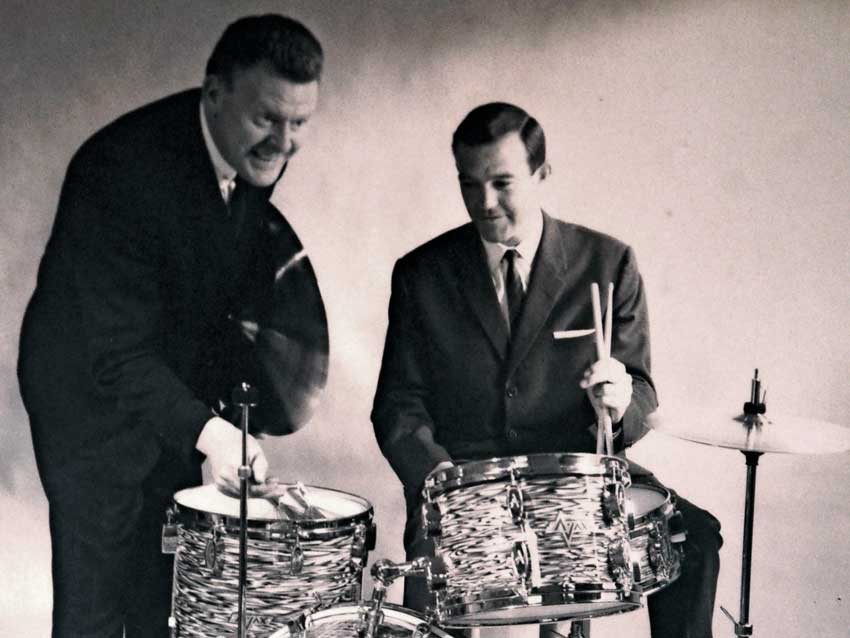
Bobby Orr
Like many of the ’60s pop drummers, Bobby Orr’s first love was jazz, and he actually began his professional career playing trumpet before circumstances forced him to abandon trumpet in favour of drums. Having made a name in Scotland, Bobby came to London and was soon making waves on the fast evolving 1950s jazz scene. As drummer at Ronnie Scott’s first club, he backed American stars Zoot Simms, Al Cohn, Milt Jackson and Dizzy Gillespie.
From here Bobby played countless sessions for TV, movies and shows. As the ’60s progressed Bobby found himself playing pop sessions – although he paid little attention, seeing them as a distraction from the serious business of playing jazz. Thus Bobby is on songs by Donovan, Dusty Springfield and so on, but he does not remember which.
As a top-name session drummer, Bobby and his fellow countryman Andy White launched the Ajax NuSound drum series in 1966. And at the height of his career Bobby had the distinction of being the only UK drummer to tour and record with the King of Swing, Benny Goodman. He also accompanied other musical giants of American showbiz, Bing Crosby, Sammy Davis Jr and Billy Eckstine.
Key track: Helen Shapiro, ‘Walking Back To Happiness’ (1961)
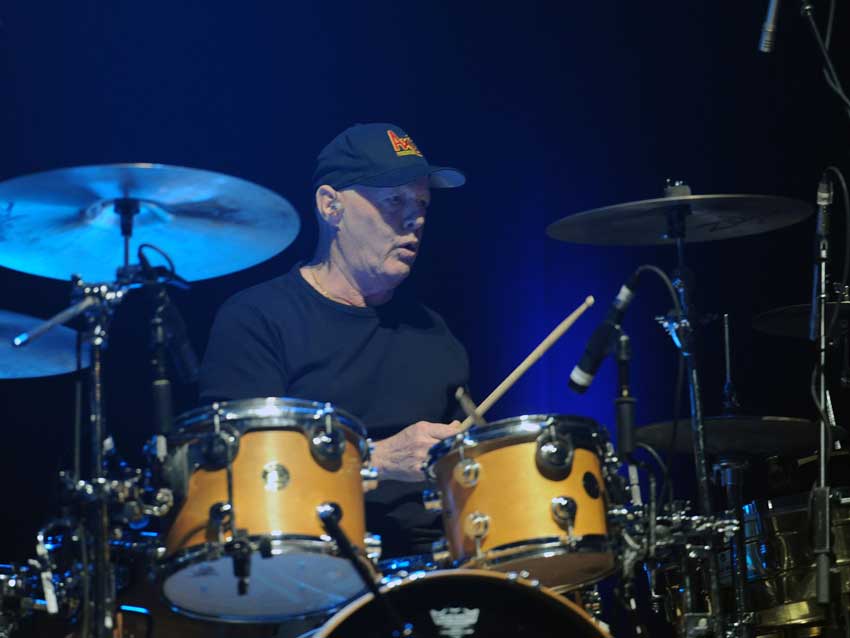
Bobby Elliot
One of the most distinguished groups to emerge from the mid-1960s Merseybeat craze, The Hollies were responsible for some of the most memorable pop hits of the day, including ‘Searchin’’, ‘Look Through Any Window’ and ‘I’m Alive’. Following a tenure with Shane Fenton and the Fentones, drummer Bobby Elliot joined Hollies lead vocalist Allan Clarke, bass player Eric Haydock and singing guitarists Tony Hicks and Graham Nash just as the ‘Merseybeat’ combo took off in 1963.
As a Lancashire teenager, Bobby loved modern jazz but was set upon his more rock’n’roll path by hearing Earl Palmer, and he went on to led shape and direction to the band’s abiding career.
Recalling one of his most memorable tracks with The Hollies, Bobby told Rhythm, “Our third hit, ‘Stay’, I was using a Trixon kit with a Ludwig Acrolite snare drum, full heads back and front and calf skins on the batter side – and a great bass drum sound.
"I bribed the engineer with whisky macs at the Abbey Tavern so he’d put an extra mic on the bass drum. He thought just one above the kit would be sufficient. In 1963, the whole band would ‘perform’ live in the studio, and that was it. Sometimes one take was enough. By the way, those early backing tracks are just Tony on guitar, Eric on bass and me on drums.”
Key tracks: The Hollies, ‘Stay’ (1963); The Hollies ‘Look Through Any Window’ (1965), The Hollies, ‘Searchin’’ (1963)
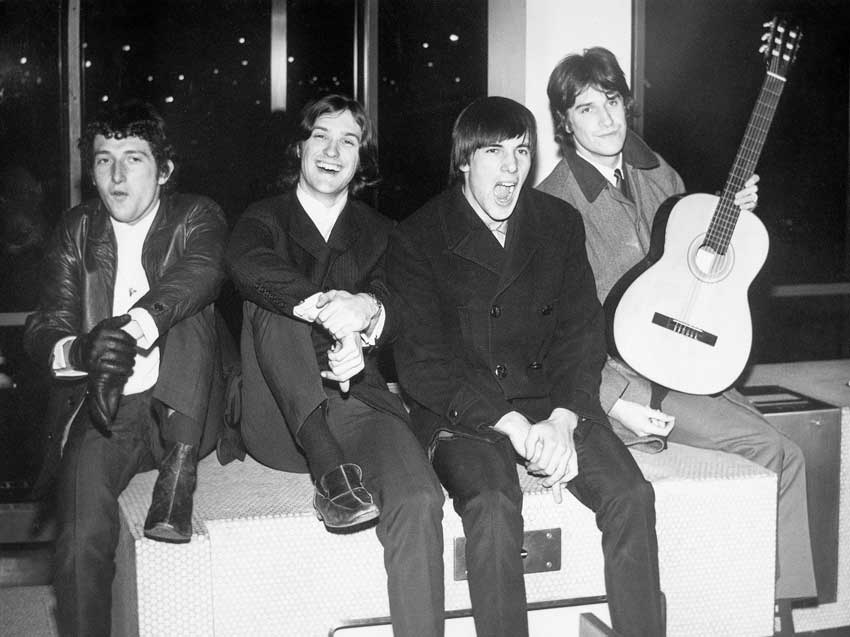
Mick Avory
Backing the mecurial talents of Dave and Ray Davies in the hugely influential Kinks was Mick Avory. Avory was a jazz schooled player who, like Charlie Watts, knew all about dynamics and applied it patiently to the Kinks’ boundary-stretching music. Mick, who had rehearsed briefly with the Rolling Stones prior to Charlie’s enlistment into the band, became The Kinks’ full-time drummer just as the band were about to lift off with ‘You Really Got Me’ – though he was denied the recording opportunities on the band’s earliest output.
“They’d already had two singles out – ‘Long Tall Sally’ and ‘You Still Want Me’,” Mick recalled to Rhythm, “and [producer] Shel Talmy insisted they carry on using the session drummer Bobby Graham on at least the A-sides in the studio. I was rather green as a recording artist – and working in the studio doesn’t relate to live work where everything depends on the mood of the moment, and you play more freely. Mind you, we often didn’t complete a full set on stage because of girls rushing the stage, and the show being stopped!
“I was on album tracks and B-sides, but the first Number One single on which I’m actually heard on drums – as opposed to just percussion – is ‘Sunny Afternoon’ in 1966. I contributed to arrangements, breaking up songs into different parts – like bringing in the vocal on ‘Sunny Afternoon’ with a triplet, which Ray doubled on acoustic guitar, and on ‘Waterloo Sunset’ I hit semi-quavers on the hi-hat over the intro. I was good at subtleties like that.”
Key tracks: The Kinks, ‘Sunny Afternoon’ (1966); The Kinks, ‘David Watts’ (1967); The Kinks, ‘Waterloo Sunset’ (1967)
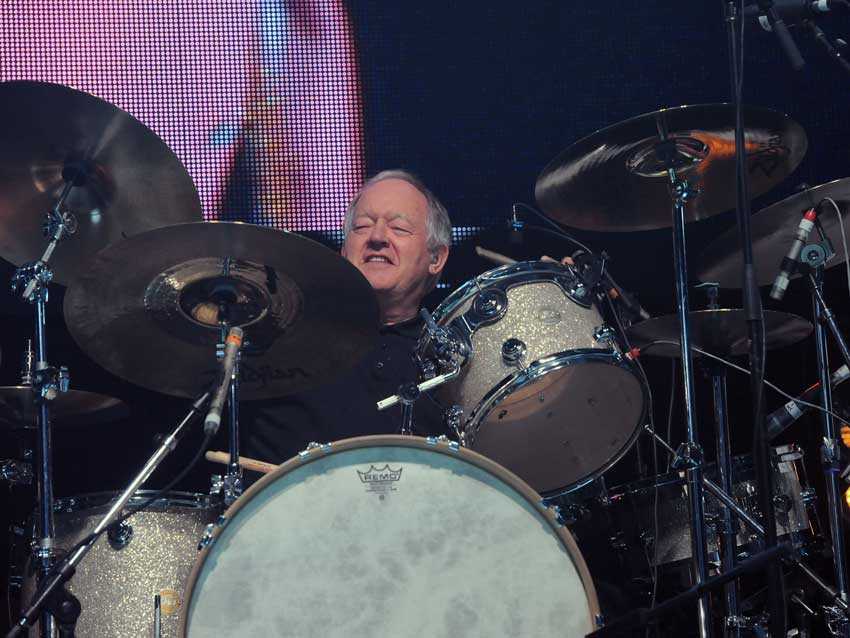
Brian Bennett
Although Tony Meehan had a huge influence on all the drummers listed here, thanks to his work backing The Shadows on such barnstorming instrumentals as the Number One hit ‘Apache’, it was his replacement from 1961, Brian Bennett, who most memorably backed Cliff Richard when the Shadows became his backing band. Brian had been in Marty Wilde’s Wildcats and had played with Eddie Cochrane and Gene Vincent before joining The Shadows, and he helped write much of the music to Cliff’s film ‘Summer Holiday’ for which he won an Ivor Novello award.
“That was actually written while we were in pantomime in Stockton.” Brian told Rhythm. “I was doing a postal course in arranging and composition with the Berklee School of Music, because I knew that I eventually wanted to get into film music. [Shadows guitarist] Bruce Welch came in and said they didn’t actually have a song called ‘Summer Holiday’ for the film, and ‘do you want to have a go?’ So we wrote it there and then.”
Key tracks: Cliff Richard and The Shadows, ‘Summer Holiday’ (1963); The Shadows, ‘Little B’ (1962)
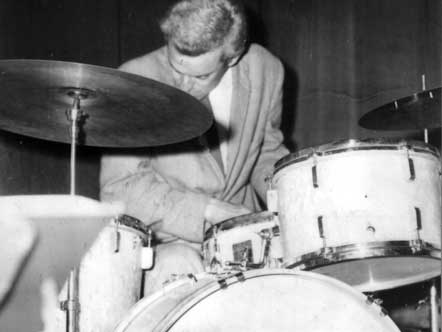
Bobby Graham
Bobby Graham made his name with acts such as Mike Berry and The Outlaws and Joe Brown’s Bruvvers before the studio sessions began to mount up.
Conservative estimates say Bob played on 15,000 records with everybody who was anybody. The Kinks, Tom Jones, the Bachelors, Dusty Springfield, the Walker Brothers, Lulu, Petula Clark, Them, Rod Stewart, Shirley Bassey (that’s him on ‘Goldfinger’). He also replaced countless inexperienced drummers on ‘group’ sessions for acts including The Animals, The Fortunes and even Dave Clark.
Says fellow ’60s drummer Bob Henrit, “He was into jazz and had a ‘lilt’ to his playing when the majority of us were relentless ‘rockers’. Bobby never really found the need to ‘straighten-out his eights’ and always had a trademark suggestion of shuffle in even his most straight-ahead playing.”
Key tracks: Dusty Springfield, ‘I Only Want To Be With You’, (1963); Petula Clark, ‘Downtown’, (1964); The Kinks, ‘You Really Got Me’ (1964); The Walker Brothers, ‘Make It Easy On Yourself’, (1965)
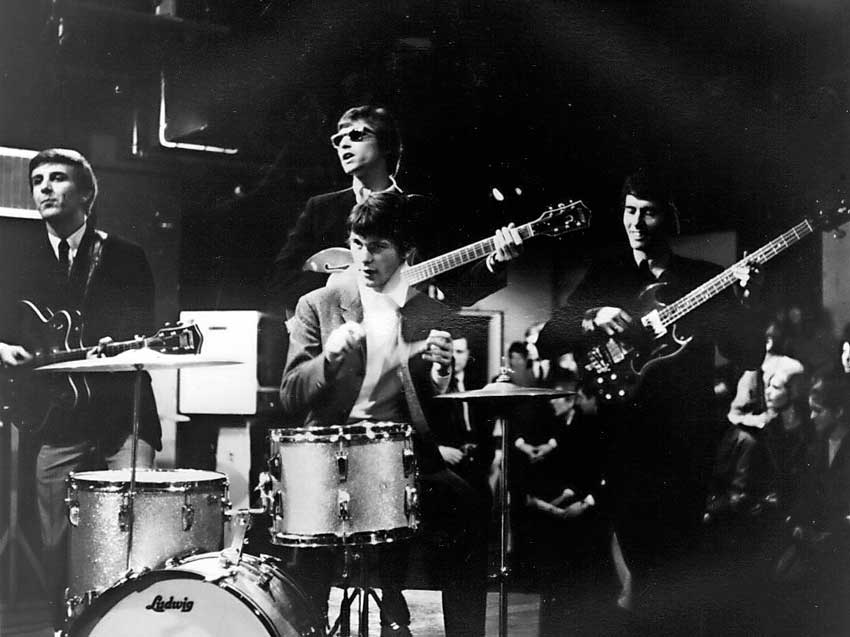
Bob Henrit
Though Bob would go on to find fame with Argent in the ’70s, at just 17 years old he had been a member of Adam Faith’s Roulettes, rivals of Cliff Richard’s Shadows. He also played on pop sessions, with guitarist Russ Ballard, including ‘Concrete And Clay’ by Unit 4+2 in 1965, which became a huge hit around the world. Bob’s Ludwig cowbell and Latin rock beat are a major feature of this memorable classic track.
“‘Concrete And Clay’ sold two million and we got paid £5. 15s. 6d, because me and Russell were the session men,” Bob revealed to Rhythm. “I’d been to school with the singer who wrote the song with a guy who had been in Adam Faith’s Roulettes for two weeks. They formed a folk group, Unit 4. The ‘+2’ was me and Russell. By this time we were rock’n’roll and we made it ‘of-the-day’, quite rocky and loud. The writer wanted it to be cool like the Drifters which would have been no use at all. I’d just learned the bossa nova beat and I thought, I can play this.” Bob also lent a storming rock drum track to The She Trinity’s version of the Sonny Curtis-penned song ‘I Fought The Law’, with Led Zep’s John Paul Jones on bass.
Key tracks:The Hunters, ‘The Storm’ (1961); Adam Faith and The Roulettes, ‘It’s Alright’ (1964); Unit 4+2‘Concrete and Clay’ (1965); The She Trinity, ‘He Fought The Law’ (1966)
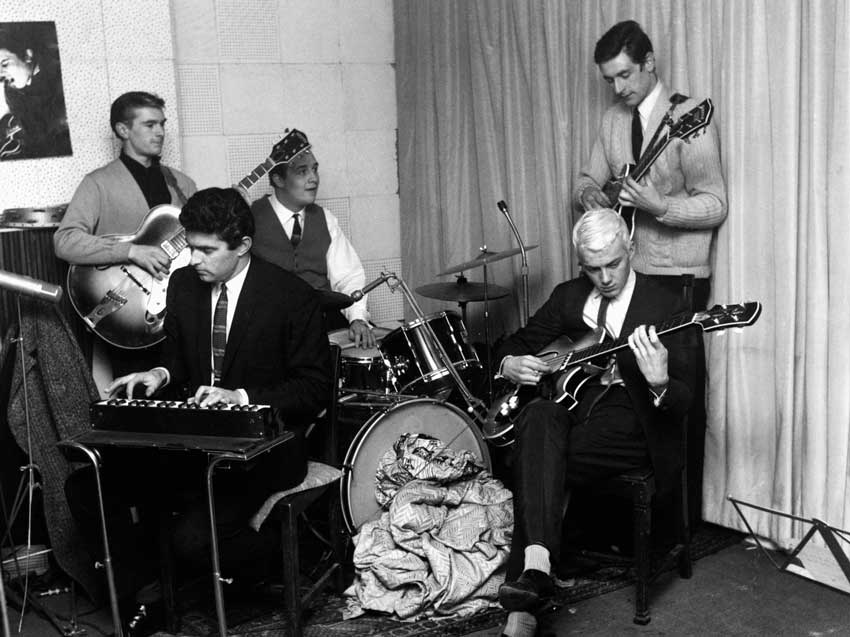
Clem Cattini
His name will remain synonymous with that of The Tornados, formed in 1961 as house band in console boffin Joe Meek’s north London studio. They also sold millions in their own right with ‘Telstar’, the quintessential British instrumental. Yet Clem Cattini was also the first true rock’n’roll sticksman to surface as a familiar figure on the session scene, playing on over 40 UK Number Ones.
Clem started out in the ’50s backing the likes of Terry Dene, Marty Wilde and Billy Fury, his commercial discography started with Johnny Kidd And The Pirates, and their hit ‘Shakin’ All Over’, and after leaving the Tornados in 1965 he become a freelance studio hireling. Roy Orbison, The Everly Brothers, Engelbert Humperdinck and The Kinks all benefitted from Clem’s studio proficiency, and indeed if Bobby Graham didn’t play on a ’60s hit, it was more than likely Clem.
Key tracks: The Tornados, ‘Telstar’ (1962); Englebert Humperdinck, ‘Release Me’ (1967); Dusty Springfield ‘You Don’t Have To Say You Love Me’ (1966); The Walker Brothers, ‘The Sun Ain’t Gonna Shine Anymore’ (1965)
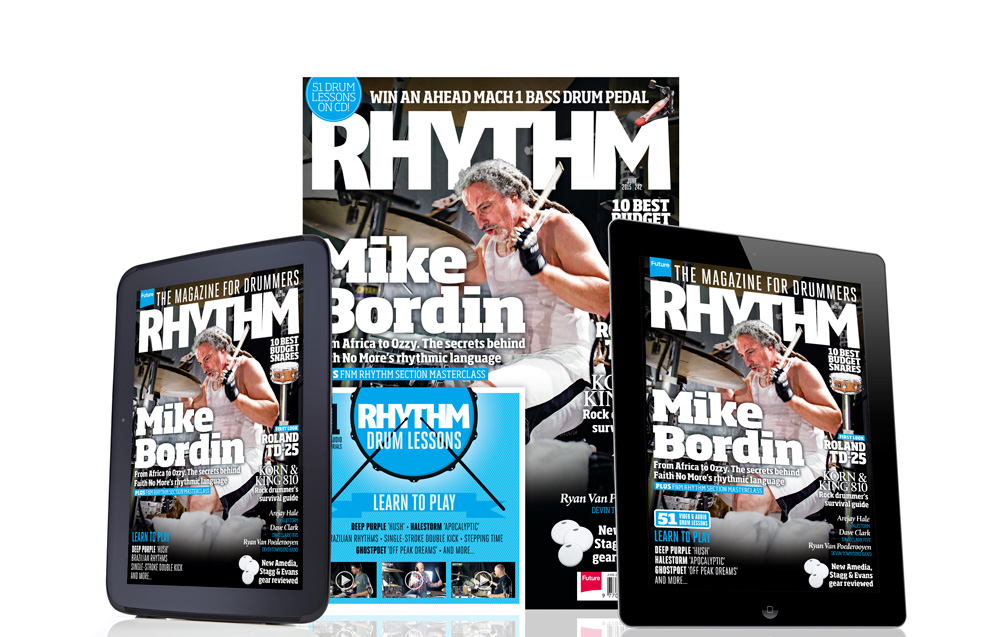
Want more?
In the June issue of Rhythm, out now, Dave looks back on his career with the DC5, and tells us how he came up with the beats for his biggest hits and managed and directed the band to near-Beatles levels of superstardom. Only in this month’s Rhythm magazine!